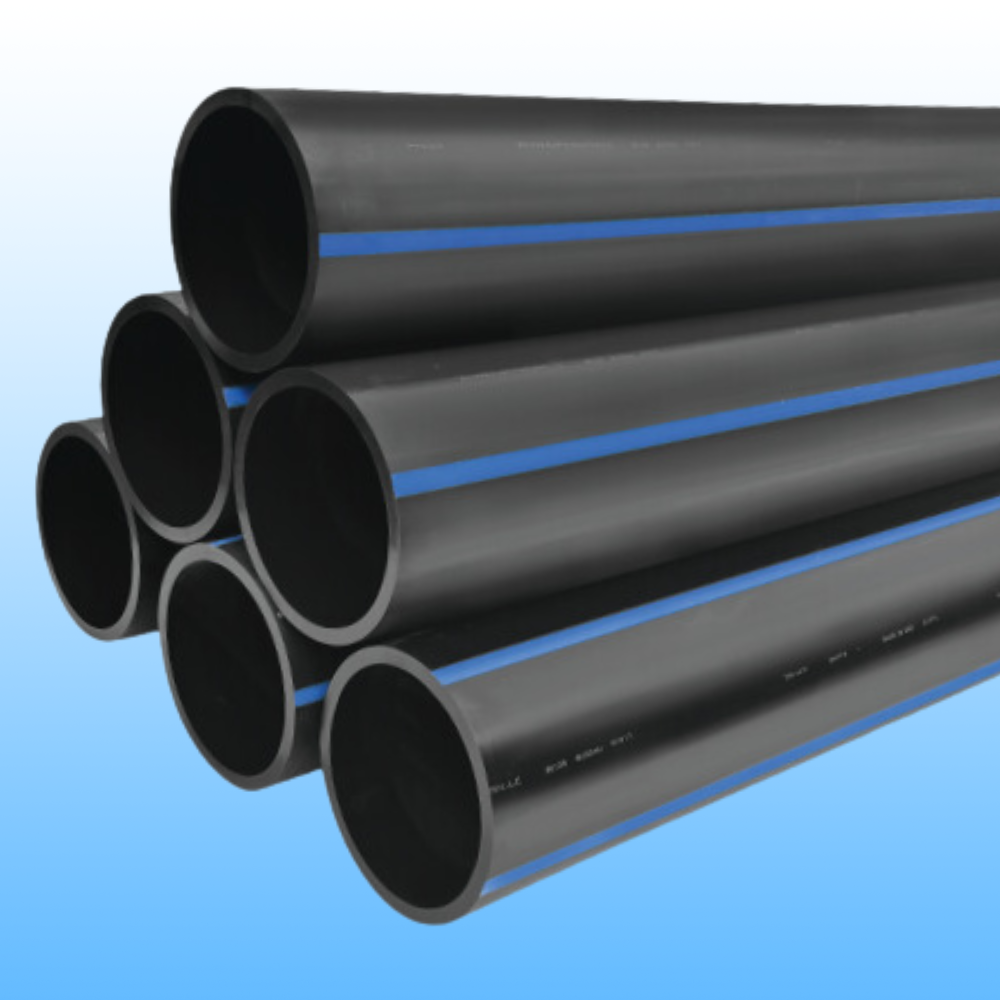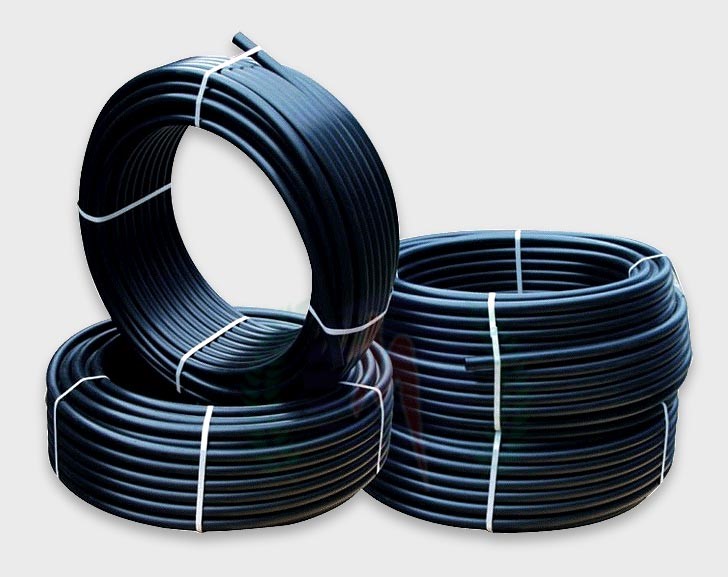Reasons Why hdpe pipe in stock Midland TX Is Valuable for Local Industries
A Comprehensive Overview to the Numerous Uses HDPE Pipe in Building and Sector
HDPE pipes have emerged as a crucial element in modern construction and commercial applications. Their unique properties, such as resistance to rust and light-weight design, make them appropriate for a wide variety of usages. From water systems to agricultural irrigation, HDPE pipelines supply services that boost efficiency and sustainability. Recognizing their varied applications is important for specialists wanting to enhance infrastructure. What particular advantages do these pipes give each market?
Water System and Distribution Solutions
Water system and circulation systems are vital parts of city framework, often depending on high-density polyethylene (HDPE) pipes for their longevity and efficiency. These systems transport drinkable water from therapy facilities to customers, making certain ease of access and security. HDPE pipes are preferred for their resistance to deterioration, chemicals, and severe temperature levels, which boosts their long life and minimizes upkeep prices. In addition, their light-weight nature permits easier installation and transportation, making them optimal for various metropolitan and country applications.
The flexibility of HDPE pipelines enables them to be mounted in tight rooms and around barriers, lessening the need for extensive excavation (hdpe pipe suppliers Midland TX). Their smooth interior surface area minimizes friction losses, boosting water flow prices. As cities proceed to grow, the need for trustworthy water system systems increases, placing HDPE pipes as a lasting service for modern-day facilities projects. Their tried and tested record makes them a preferred selection among designers and urban coordinators alike
Wastewater Management and Treatment
Reliable wastewater management and therapy are essential for preserving public health and environmental top quality. HDPE pipes play a crucial function in this procedure due to their longevity, resistance to corrosion, and capability to withstand extreme chemicals. These pipelines are typically utilized in various applications, consisting of sewage systems, stormwater drainage, and wastewater treatment facilities. Their lightweight nature facilitates simpler installment and transport, reducing labor costs and time.
In enhancement, HDPE pipelines have a smooth interior surface area that reduces rubbing loss, advertising efficient flow prices. They are additionally much less susceptible to leakages and failures compared to typical materials, guaranteeing that pollutants are consisted of properly. Their adaptability enables for flexibility in various dirt conditions, making them appropriate for varied environmental setups. As industries significantly focus on sustainable methods, the usage of HDPE pipes in wastewater management systems aligns with objectives for minimizing environmental impact and boosting resource recovery.
Agricultural Watering Solutions
In farming setups, effective irrigation solutions are essential for enhancing crop yields and handling water resources. HDPE (High-Density Polyethylene) pipelines play an important function in modern-day irrigation systems due to their longevity, versatility, and resistance to rust. Their ability to endure high pressures makes them perfect for both surface area and subsurface irrigation applications, making certain consistent water distribution throughout areas.
Farmers can utilize HDPE pipes in drip watering systems, which provide water directly to plant origins, lessening wastefulness and promoting healthy development. In addition, these pipelines are light-weight and very easy to mount, reducing labor prices and installation time. fix plumbing leak Their long life-span and reduced upkeep requirements further boost their allure in agricultural techniques.
Furthermore, HDPE pipes are eco-friendly, as they can be reused and do not leach hazardous chemicals right into the dirt. This makes them a lasting option for farmers aiming to adopt environment-friendly farming methods while making the most of productivity.
Industrial Applications and Procedures
Adaptability is a hallmark of HDPE pipelines, making them essential in various commercial applications and procedures. These pipelines are commonly utilized in chemical handling sectors as a result of their superb resistance to a vast array of harsh materials. HDPE's light-weight nature, integrated with high tensile toughness, permits easy installation and lasting performance in demanding settings.
In the oil and gas industry, HDPE pipes play an important role in transferring hydrocarbons and gases, many thanks to their toughness and adaptability - hdpe pipe in stock Midland TX. In addition, they are employed in mining procedures for the transportation of slurry and other materials, where standard piping systems may fall short
Furthermore, HDPE pipelines are increasingly utilized in making facilities for water lines and wastewater management. Their capability to withstand extreme temperature levels and pressures makes them suitable for a range of commercial procedures. Overall, HDPE pipes contribute substantially to efficiency and security throughout diverse industrial applications.
Stormwater Administration and Water Drainage Systems
Stormwater management and drain systems are vital elements in city infrastructure, developed to take care of excess rainfall and decrease flooding threats. High-density polyethylene (HDPE) pipes are significantly utilized in these systems due to their sturdiness, adaptability, and resistance to corrosion. These pipelines efficiently carry stormwater far from inhabited locations, reducing surface drainage and preventing waterlogging.
HDPE's light-weight nature assists in much easier installment, minimizing labor expenses and building and construction time. Additionally, its resistance to chemicals and ecological stressors assurances longevity and integrity in different climates. In enhancement to typical drainage applications, HDPE pipelines are also used in cutting-edge solutions such as eco-friendly facilities, that includes rain yards and absorptive pavements.

Regularly Asked Questions
Exactly How Does HDPE Pipeline Contrast to PVC Pipe in Expense?
Generally, HDPE pipe often tends to be more costly than PVC pipeline because of its boosted sturdiness and adaptability. Long-term price factors to consider, such as maintenance and lifespan, might favor HDPE in particular applications.
What Is the Lifespan of HDPE Piping Under Varying Conditions?
HDPE pipelines normally have a life expectancy of 50 to 100 years, depending on ecological conditions, installment methods, and usage. Variables such as temperature, dirt type, and direct exposure to chemicals can greatly influence their durability.
Can HDPE Pipes Be Recycled After Usage?
Yes, HDPE pipelines can be recycled after use. The reusing procedure involves melting down the material, permitting it to be repurposed into brand-new products, thereby promoting sustainability and decreasing environmental impact associated with plastic waste.
Exist Any Type Of Particular Installment Difficulties With HDPE Pipelines?
Installation difficulties with HDPE pipelines include appropriate jointing techniques, making sure adequate trench conditions, and taking care of thermal expansion. Furthermore, proficient labor is required to manage specialized devices, which can make complex the installation procedure in various atmospheres.

What Qualifications Should I Try To Find When Getting HDPE Pipelines?
When purchasing HDPE pipelines, one must search for certifications such as ASTM, AASHTO, and ISO, which validate high quality and compliance with sector requirements, ensuring durability and performance in different applications. - American Plastics HDPE Pipe for Oilfield